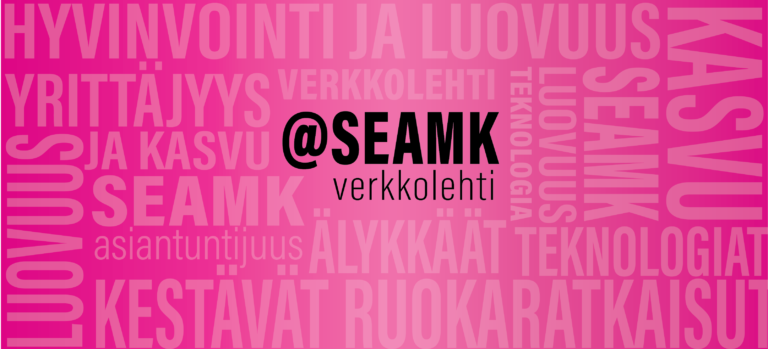Supporting CALD Nursing Students Through Peer Mentoring

The path of becoming a nurse is both rewarding and challenging, particularly for culturally and linguistically diverse (CALD) students studying in a foreign country. These students face unique challenges as they navigate not only their academic studies but also cultural adaptation and language acquisition. Research has shown that CALD nursing students often encounter additional barriers including language difficulties, cultural differences in healthcare practices, and adaptation to new learning environments (Mikkonen et al., 2016, 173).
Peer mentoring creates a bridge between an experienced CALD nursing student and newcomers, fostering an environment of mutual understanding and growth. This supportive relationship goes beyond traditional academic assistance, encompassing cultural navigation, language support, and emotional encouragement. McKenna and Williams (2017, 80) highlight how peer mentoring enhances student learning through shared experiences and informal knowledge transfer, while promoting professional socialization and development. The shared experiences between mentor and mentees create a unique bond that helps reduce feelings of isolation and enhances the learning experience. The Culture and Language-aware Nursing in South Ostrobothnia project implements peer mentoring as one approach to support CALD nursing students in their studies.
Peer Mentoring Practice
The significance of peer mentoring is exemplified in SeAMK’s nursing program, where a nurse with an international background serves as a peer mentor for new CALD students. The peer mentor, working as part of The Culture and Language-aware Nursing in South Ostrobothnia project, graduated from SeAMK in May 2024 and began mentoring new international students who arrived in Seinäjoki in October 2024. The mentor’s background includes a nursing degree from the Philippines obtained in 2009 and over 13 years of diverse work experience. During two years of residing in Finland, the mentor has combined studies, work, and family life, which has provided valuable experience for the peer mentor role.
Personal experience as an international student has proven invaluable in peer mentoring. The mentor deeply understands the challenges that new students face when adapting to Finnish society and study culture. Personal experience in balancing studies, work, and family life, along with the peer support received, has created a strong foundation for serving as a mentor.
The mentoring process began while the students were still in their home countries, with the mentor providing guidance and support with practical pre-arrival arrangements through Signal-group. A significant part of this early support focused on housing-related matters, helping new students navigate the local rental market and housing arrangements in Seinäjoki.
The peer mentor’s role extends beyond reactive support to include proactive engagement. This has manifested in organizing various activities such as official welcome sessions at the university, walking tours of Seinäjoki’s key locations, winter “kirpputori” (flea market) events for students and their families, and “pikkujoulu” (pre-Christmas celebrations). These activities help students learn about Finnish culture while feeling welcomed and maintaining positive spirits.

Monthly peer mentoring sessions lasting approximately two hours provide an open forum for new students to ask questions and share experiences. The mentor maintains a safe and confidential environment, offering support and guidance while conducting additional research when needed for more challenging questions. Students can also access one-on-one support through direct messaging or calls.
The mentor’s holistic approach encompasses numerous aspects of daily life. Support extends to academic studies and clinical training, as well as guidance with family life and children’s school activities. The mentor assists in navigating Finnish government systems including Migri, DVV, Kela, and Vero, while also providing information about healthcare services such as YTHS for students and Omaep for families. Additional support includes guidance with practical matters such as driver’s licensing, job applications, CV preparation, and banking services.Student feedback has demonstrated the program’s significant impact. As one student noted, “Having a peer mentor is like having a friend you can count on all the time.” Another student emphasized the importance of shared experiences, stating that “being an international student is not that easy… having a peer mentor is a great advantage [as] he/she was once a student also and understands what we are going through.” The practical value of the program was highlighted by another student who appreciated having “someone you can ask about anything apart from studies, since starting a new life in unfamiliar place is not that easy.”
Students particularly valued the mentor’s commitment to supporting them, with one student noting that “the peer mentor gives their best in answering and accommodating our every question.” The impact on student motivation was also evident, as expressed by a student who shared that “the peer mentor can relate to our struggles and encourages us to move on, making us believe this journey is an avenue worth exploring.”
The peer mentoring program has proven beneficial for both mentees and the mentor. New students gain a supportive advocate who understands their concerns and helps them navigate their new environment, while the mentor gains insights that help improve future support for CALD students. This reciprocal relationship strengthens the international student community at SeAMK while promoting cultural integration and academic success.

The article has been prepared as part of the CareEP project, “Cultural and Language-Aware Nursing in South Ostrobothnia” , which is co-funded by the European Union. We would like to thank the funder for financing the project and the article.
For more information, visit https://projektit.seamk.fi/hyvinvointi-ja-luovuus/careep/
Terhi Voltti
Senior Lecturer, Project Manager Culture and Language-aware Nursing in South Ostrobothnia Project
SeAMK
Alice Suominen
Part-time Lecturer, Peer Mentor Culture and Language-aware Nursing in South Ostrobothnia Project
SeAMK
References
McKenna, L., & Williams, B. (2017). The hidden curriculum in near-peer learning: An exploratory qualitative study. Nurse Education Today, 50, 77-81.
Mikkonen, K., Elo, S., Kuivila, H. M., Tuomikoski, A. M., & Kääriäinen, M. (2016). Culturally and linguistically diverse healthcare students’ experiences of learning in a clinical environment: A systematic review of qualitative studies. International Journal of Nursing Studies.